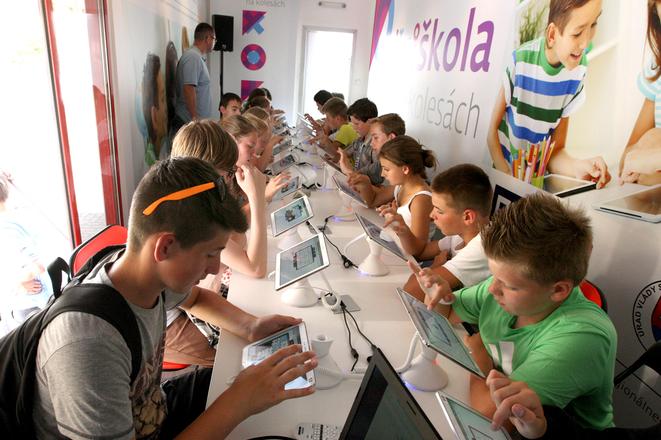The Education Ministry can sign an agreement with the winner of the competition to improve the internet connection of schools. The Public Procurement Office (ÚVO) has completed its scrutiny, without revealing any errors that would impact the result of the competition, the ministry informed on July 25.
Non-governmental organisations, however, insist there still remain some unanswered questions accompanying the procurement. Moreover, in their opinion the inspection has not been completed yet.
No flaws revealed, the ministry claims
“As we already said, we wanted to wait for the results of the ÚVO’s inspection before inking an agreement with the winning bidder,” Education Minister Peter Plavčan (nominee of the Slovak National Party) said in a press release. “It is a big and very important project, so we didn’t want to rush it. The results of the inspection clearly show we can sign a deal with the most successful company.”
The competition, worth €67 million excluding VAT, was launched in November 2015. The ministry now plans to sign the agreement with the winner, company Swan, in the second half of August in order to start the project as soon as possible and secure the services for pupils, teachers and schools that will “effectively support education”, Plavčan added.
The report from the inspection stipulates that the conditions of the competition could be met by several providers active in the market and that the technical parameters cannot be considered discriminatory.
The competition was attended by only four bidders, though the number of IT service providers active in the market is higher. The comptrollers however claimed that the conditions could not have been the reason for the other providers not to enter the competition, the ministry wrote in the press release.
In addition, the report states that the subject of the competition was clearly defined and did not favour any particular players in the market.
Though the inspection revealed one error, it had no impact on the final result. The ministry wrote in the competition materials that the bidders have to accept the maximum prices of services set by the ministry and would be excluded if they did not meet this demand. The law on public procurement, however, stipulates that the bidder can be excluded only due to reasons stated in law, which does not include the setting of a maximum price for services, the ministry’s press release reads.
This condition, however, was not used in the competition, thus it had no impact on the final result, the ministry claimed.
Watchdogs remain critical
The non-governmental organisations, Fair-Play Alliance and Slovensko.Digital, however, warn there are still some unanswered questions surrounding the Edunet project. They point especially to the fact that only four bidders attended the competition, though the number of relevant suppliers is higher.
“Many of them currently provide schools with internet connection under more favourable conditions than the Edunet project offers,” Ján Hargaš of Slovensko.Digital wrote in a press release.
The conditions could be set in a way that would be more attractive for local internet providers, which would save the state money. The ministry however failed to analyse this possibility when preparing the competition, Hargaš added.

The experts provided several past examples from abroad, showing the ministry how it would be possible to make the Edunet project accessible to more bidders.
The NGOs also claimed the inspection has not been completed yet. The ministry only received its results to see and comment on them.
“This means that the report from the inspection is not final, and thus not public,” said Pavol Lacko of the Fair-Play Alliance. “We cannot check at this stage whether the ministry has interpreted the results correctly.”
The NGOs also questioned the ministry’s statement that the ÚVO confirmed “the effectiveness of one common service provider”, i.e. the central purchase of the internet services.
“We are curious about the comparisons and hard data the ÚVO used,” Lacko said. “When we asked the ministry in November 2016 about the analysis over the advantageousness of the central purchase, it said it had not carried out any such analysis before starting the procurement.”
If the ÚVO really checked the advantageousness, it would mean the ministry must have done it.
The NGOs also reminded Plavčan of his promise to discuss the project.



 Illustrative stock photo (source: SME)
Illustrative stock photo (source: SME)